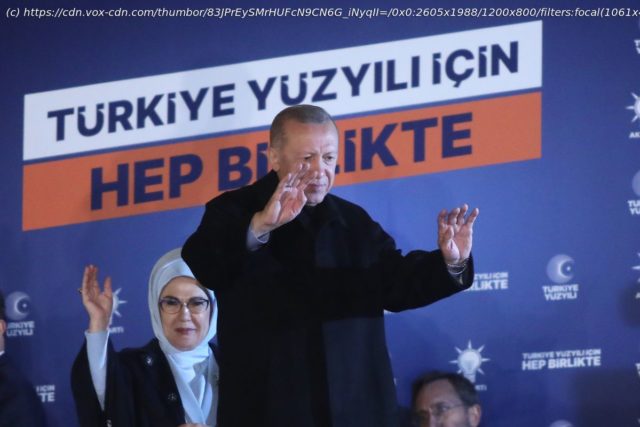Turkish President Recep Tayyip Erdoğan took 49.5 percent of the vote while his main rival Kemal Kılıçdaroğlu got 44.89 percent of the vote, pushing the closely-watched presidential election to a runoff on May 28.
Turkey’s very big deal elections are headed to a May 28 runoff, after President Recep Tayyip Erdoğan and his main opposition challenger failed to win a majority in the first round of voting.
This election was perhaps the biggest test yet to Erdoğan’s authority. The populist has led Turkey for 20 years. He has consolidated power around him, and largely controls the media and state resources, so the opposition forcing the leader to a run-off for the first time in his presidential career is a remarkable feat.
Yet Erdoğan emerged from the first round in a strong position, winning 49.5 percent of the vote Sunday, according to Turkey’s Supreme Election Council, with Kemal Kiliçdaroğlu, the leader of a six-party opposition alliance, tallying 44.89 percent.
That’s a disappointment for the opposition, especially as Kiliçdaroğlu appeared to have a slight edge in the polls before Sunday’s vote. Kiliçdaroğlu had promised to restore Turkey’s democracy and independent institutions and press, along with tackling Turkey’s floundering economy. He had run a plainspoken campaign that spoke directly to constituents, and had tried to soften his party’s (the Republican People’s Party, or CHP) secularist stances to try to appeal to a broader swath of voters.
But Erdoğan once again proved his electoral strength, even if this is the first time he hasn’t won a presidential election outright. His party, the Justice and Development Party (AKP), and its biggest allies, also looked poised to retain a majority in parliament, based on preliminary election results.
Both candidates promised victory in the May 28 runoff, but Erdoğan has the clear advantage. He already has a built-in edge, dominating the airwaves and using state resources to do things like give public workers big raises, and he may reprise similar tactics in the next two weeks. His biggest potential challenges — Turkey’s economic woes, and his government’s handling of an earthquake that killed 50,000 just a few months ago — didn’t force him into a first-round loss, as some experts thought was possible ahead of this weekend.
What’s more, a nationalist candidate, Sinan Ogan, took about 5 percent of the vote this first round. Ogan is milking his status as kingmaker by being cagey about who he’ll endorse in the runoff, but in reality, Ogan is even more extreme on issues like refugees and Kurdish rights, and so his voters are more likely to drift back toward Erdoğan.
And even if they don’t, Erdoğan doesn’t need all that many new voters to tip him toward victory, cementing another five years of Erdoğan rule in Turkey and likely keeping Turkey on its current economic, political, and foreign policy trajectory.Turkey’s elections were the biggest challenge to Erdoğan in years — but it might not have been enough
Erdoğan has dominated Turkish politics for most of this century. He served as prime minister from 2003 to 2014, until being elected president in 2014. The presidency used to be a mostly ceremonial role, but Erdoğan has moved the country from a parliamentary democracy to a strong presidential system. Erdoğan used a failed coup attempt in 2016 to accelerate his consolidation of power and to purge the civil service, the judiciary, and the military. He has cracked down on independent media, arresting journalists and other civil society members. Through referenda, he has expanded the powers of the presidency and removed many of the checks against that power.
Even as Erdoğan has become more of a strongman, he’s remained a pretty popular leader. His tough-guy persona has real appeal, especially when rallying fervor against certain groups he labels terrorists or picking fights with the West. He has raised Turkey’s profile internationally — though as a NATO member, Turkey has been a bit of a thorn in the alliance’s side — and all of that seemed to work in his favor this election, too.






